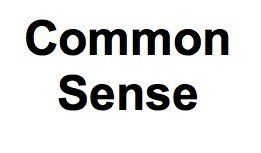300,000 Marylanders Will See Big Increase in Health Insurance Premiums Due to Harris, OBBBA

Health insurance premiums for nearly 300,000 Marylanders will increase dramatically next year because of the Trump/GOP One Big Beautiful Bill Act signed into law in July.
Our Congressman, Maryland District 1 Rep. Andrew P. Harris voted for that bill.
Who will this affect?
- People who buy individual health insurance plans through Maryland’s Affordable Care Act Marketplace.
How much will the increase be?
- 13.4% on average; policy holders will pay hundreds more for health insurance in 2026.
Why is the increase happening?
- Federal tax credits that help keep costs down for low- to middle-income Marylanders are scheduled to expire at the end of 2025 because the OBBBA did not renew the credits.
- The Maryland General Assembly approved funding this year that will cover some, but not all, of the increase.
- An estimated increase of 6.5% in medical and pharmaceutical costs also contributes to the rate hike.
What does this mean for Marylanders?
- A 30-year-old individual earning $39,125 per year could see their monthly premiums increase by 97% ($61/month to $121/month for a Silver plan). However, without Maryland’s new financial help, they would have seen an even bigger increase of 348% (from $61/month to $275/month for a Silver plan)
Why are the tax credits ending?
- The enhanced health insurance premium tax credits provided by the American Rescue Plan and Inflation Reduction Act will expire on December 31, 2025.
- The tax credits were not extended in the Trump/GOP OBBBA.
What is the likely outcome?
- People who can no longer afford their plans will drop their insurance.
Can anything be done?
- As part of negotiations to prevent a government shutdown on Oct 1, Democrats are pushing to preserve health care programs, including the permanent restoration of the federal tax credits and reversal of Medicaid cuts in OBBBA.
Reactions in Maryland:
- “Under this new federal administration, Washington has shirked its duty to help middle-class Americans and families in poverty get affordable health care. Congress should act without delay to avoid these federal tax credits being ripped away from hardworking families,” said Maryland Gov. Wes Moore. “In Maryland, we will continue to do everything in our power to keep costs low for families and preserve access to affordable care.”
- “This can still be fixed,” said Vincent DeMarco, president of the Maryland Health Care for All coalition. “If Congress fails, it will hurt Marylanders.”
While we're talking about health insurance, we should not forget the severe cuts to the Medicaid program that will affect many people on the Eastern Shore. Rep. Harris voted for those, too. Read more here and here.
This article was updated to include an example increase.
Jan Plotczyk spent 25 years as a survey and education statistician with the federal government, at the Census Bureau and the National Center for Education Statistics. She retired to Rock Hall.
Common Sense for the Eastern Shore







